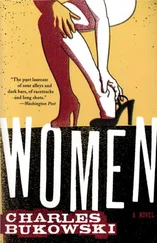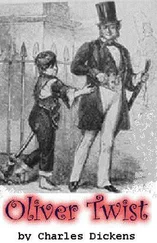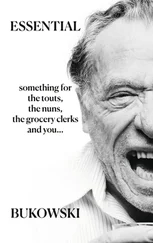The baby rattled and chirped inside the carriage. Three of the lines on the desk phone were blinking.
“By the Post-it,” said Miss Culpepper.
As if this was his cue, Oliver shifted, jutting halfway across the desk. “We signed a proxy that authorizes me to talk about these matters — I faxed it at least three times. I’m sure a copy got to you.” He unfurled a smile designed to be charming. “Miss Culpepper? My wife’s dealing with enough on her plate. I’m sure you and I can discuss this separately?”
Miss Culpepper’s eyes were large, but not engaged, or particularly interested. She nibbled her lip. “We here at Whitman do offer significant financial aid, available for those patients that qualify.” She cleared her throat. “If and when the time comes that you should feel you need help, I can provide you with that paperwork.”
“So nothing’s necessarily wrong with our insurance?” Alice asked her.
“Hospital policy is, we can’t let you see the doctor unless you sign this form.”
“You’re not answering my question,” Alice said.
“Just let me worry about that,” Oliver said. “Okay?”
—
Yes, everything was moving forward. Alice was even remembering to breathe. Even now she was breathing, releasing her worries as if they were doves outside an elaborate wedding. For the third time since her arrival at the check-in desk, Alice apologized for the confusion in getting her slides transferred from Dartmouth. Alice told Beth there had never been a doubt the mess would get straightened out, and she thanked Beth yet again for her patience and competence, and, Alice agreed, it was nice to see someone in person after so much time on the phone — she felt like she knew Beth already.
Squarely in her line of sight were placards informing of the high risk of infection among patients, and asking that any registering patient let the staff know about cold symptoms, and if you had any kind of rash. Holding the sheet with her orders for blood work, Alice turned her torso away from the desk, and began scribbling in her little pad, two lines beneath her notes about Culpepper, reminders for how to identify Beth.
Everything will be fine.
One of the other receptionists was occupied by the task of training a new hire, and the morning’s backlog of patients was lined up behind Alice, with two elderly ladies bonding over the horrible traffic and how worried each had been about missing her appointment. Pushing herself upright, Alice eased between them, apologizing with a deference one normally reserves for royalty. She felt a light-headedness, as if billions of carbonated bubbles were dancing and popping inside her brain. Way to sabotage yourself, pushing that carriage all over the hospital.
She leaned on a chair for support, wiped her brow, adjusted the pinch of the mask on her nose, and took her good sweet time, unzipping, removing, and folding her winter coat.
Your body can only do what it can do.
Over a long thermal shirt, she was wearing a tight, bright yellow tee. Across her chest, black iron-on letters screamed: GOOD GIRLS GO TO HEAVEN. BLONDES GO EVERYWHERE.She was wearing Thierry Mugler jeans strategically shredded with a straightedge razor. She was wearing combat boots with three-inch black rubber soles that were laced to the middles of her calves. She made sure the metallic-blue bob was secure on her head. She straightened her back, though not too straight, and lifted her chin, though not too high — she knew better from being behind the scenes at runway shows, altering and sewing up dresses at the last second while designers barked instructions at models. Alice swallowed the bile that had accumulated in the back of her throat, and, with the poofy jacket a black octopus bulging out from beneath her arm, she returned her focus to nailing each landed step, assuring firm balance. In this way she started back into the waiting room’s garden party color scheme, pastels and soft greens, its walls adorned with Impressionists’ landscapes.
The blood cancer waiting room is how she thought of it.
Golf shirts and elastic waistbands and old-lady Afros and blue surgical gloves, paunches and waddle necks, and oxygen masks and IV stands with clear plastic tubing; elderly people, mostly, reclining or sitting stiffly on comfy couches, their liver-spotted or gloved hands fidgeting, their eyes darting or downcast. They sat in small groupings, usually pairs. Who wanted to go through this alone?
On the nearest couch, a scarf of bright colors was wrapped around the head of a plump woman. A glance showed her to be a fright — swollen forehead, red rashy skin, a huge gauze patch where her left eye should have been, and that ubiquitous egg-blue bandit mask covering her nose and mouth. As Alice passed, the woman’s good eye rose from her paperback copy of A Time to Kill . Her mask widened, scarcely containing an obvious grin. She nudged her husband: his white brush of hair rose from a hardback copy of The Firm; he took in the sight, and broke out as well, his face going joyful.
Alice walked past a patient strapped onto a stretcher; the bored EMT gave Alice a wink.
Past a doctor leaning over and talking softly with two pear-shaped seniors, telling them it would be at least a half hour before results came in. “Maybe you want to get some breakfast? When you get back, just tell the desk to let me know.”
A man looked up: thin as a twig, gnarled, with a grotesquely humped back. His skin so gray it was almost green, his sunken eyes lively, almost joyful as they tracked her.
She noticed an immaculately attired Japanese couple watching her — how excellent the woman’s boots were; Alice would have killed for those boots.
If these people took something from her defiance, she was happy to be able to provide it. In spades and clovers she could provide defiance. God bless them all, she thought.
Oliver had set up an outpost in a corner alcove, and, by the time Alice arrived, she was exhausted, and exhilarated, and deeply emotional, ready to cry, vomit, scream. “I have to remember that we all have our own times and journeys,” she said. “Their situation is not my situation. I’m young and I’m strong and I have every reason in the world to get past this.”
“Of course you do,” he said. “You will.”
She snatched her baby from Oliver’s arms: the Blueberry was squirmy — exposure to day after day of passing nurses and doctors had turned her into an expert flirter, with an advanced degree in seeking out strangers, but this waiting room was proving to be too much, the child was overstimulated, turning cranky. Mommy. She needed Mommy.
Alice’s hand went behind her daughter’s head. She brought Doe in toward her bosom, the infant’s eyes widening. Doe spread open her mouth, revealing the pink mountain ridges that were her toothless gums. Instinct taking over, she went straight for Mommy’s breast.
Alice veered her off and rocked her in place and made clucking sweet sounds. In the child’s lumpy potato of a face, Alice still got a thrill from recognizing Oliver’s nose, his hard, dramatic brow, his protruding ears. She also felt chagrin, the child had not escaped the curse of Mommy’s weak chin. Nonetheless, Doe was clearly her own self, this evident even as she satisfied another textbook baby cliché: her baldish head, wondrous eyes, and pink visage belonging to infancy, yes, but also to the ancients. Indeed, Doe’s resemblance to so many of the seniors in the blood cancer waiting room was unmooring, and took Alice to a dark place, one deep inside her, a place of fathomless horrors.
Behind Oliver, just over his shoulder, a bronze plaque memorialized a beloved patriarch whose family had donated a wing. The air was cool and dry, which Alice knew was to prevent any germs from carrying. On the side table, a half-filled blue coffee cup was leaving ring stains. The table was covered with back issues of Schlep— “For Jewish Seniors on the Go.” Oliver had been trying without success to get Doe to take her formula. He also had bottled water ready for Alice; all she had to do was glance a certain way. Alice crammed her fears back down into their deep dark resting place, and guided the plastic bottle toward Doe’s open mouth.
Читать дальше











